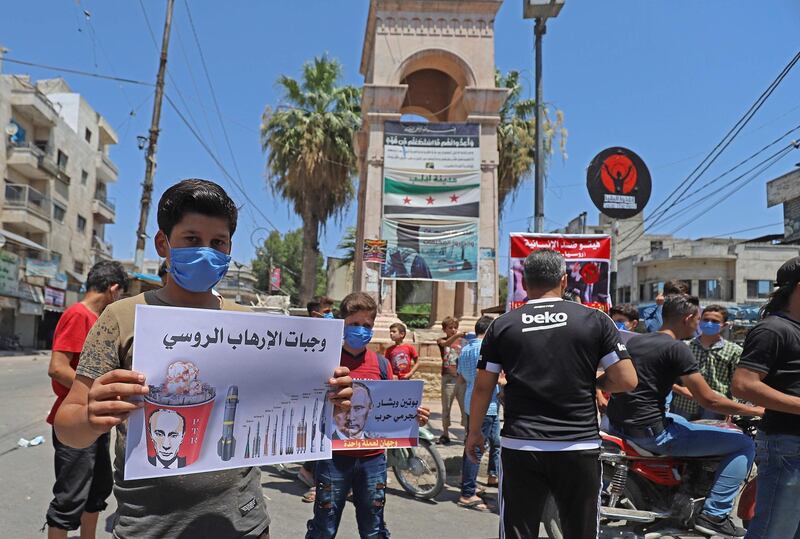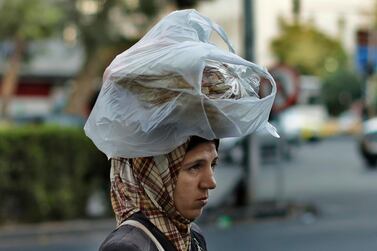Since Friday, three million people living in an isolated and impoverished stretch of land in north-western Syria have indefinitely lost access to vital aid.
The UN's six-year-long mandate for aid deliveries, which allowed it to deliver essential goods across Syria's borders to Idlib, with the government's intervention, has expired, after Russia and China vetoed both a six-month extension and a one-year extension to aid coming in from Turkey.
The decision has cut off a “lifeline” for Syrians living in Idlib, according to the UN, jeopardising the well-being of millions. Alarmingly, the Sino-Russian vetoes came one day after Idlib announced its first case of the coronavirus. The first Covid-19 patient in the enclave is a doctor who came in contact with patients at a hospital on the Syrian-Turkish border, potentially infecting scores of others.
Idlib is woefully unprepared for a full-blown Covid-19 outbreak. More than one third of the region’s inhabitants are internally displaced people living in squalid camps, where it is impossible to practise physical distancing and protect one’s self from infection. The region has also been relentlessly bombed, with hospitals and other medical facilities specifically targeted by the Syrian regime and its Russian ally, before a truce was signed earlier this year.
Less than 400 coronavirus cases have been officially recorded in Syria. But the true number of infections, both in rebel and regime-held areas, is likely many times higher than the official toll. Much like the rest of the country, Idlib has little access to testing equipment. With its healthcare infrastructure in tatters, and the hospital where the region's first patient operated in, forced to shut down, the enclave is on the verge of a major public health catastrophe.
Idlib is, unfortunately, not the only area suffering from the politicisation of humanitarian relief. For instance, the Rukban refugee camp, along the Syrian-Jordanian border, is cut off from its regime-held surroundings and from Jordan. Vital aid is only has not been delivered in nearly a year because of pressure from the regime and its allies.
Withholding aid from Syria’s most vulnerable populations amounts to a death sentence. A Russian proposal that would have allowed for just one Turkish crossing for six months was also rejected at the UN Security Council. This counter-proposal offered no real solution to the predicament of Syrians. Moscow seeks to channel the deliveries through Damascus, but there is no guarantee that Bashar Al Assad’s corrupt and cash-strapped regime will refrain from withholding or diverting humanitarian relief. While foreign powers bicker at the UN, ordinary Syrians pay the price of these divisions.
Politicising aid amounts to denying Syrians their basic human rights. Food, medicine and other necessities are channelled through the UN’s relief agencies, but their operations have now come to a grinding halt.
The Security Council must not be used as an arena for foreign powers to settle their differences. If nothing is done in the coming days, millions will incur the risk of dying from Covid-19 or hunger. The international community must come together and ensure civilian lives do not become bargaining chips used by the Syria regime to advance its cynical political goals.






